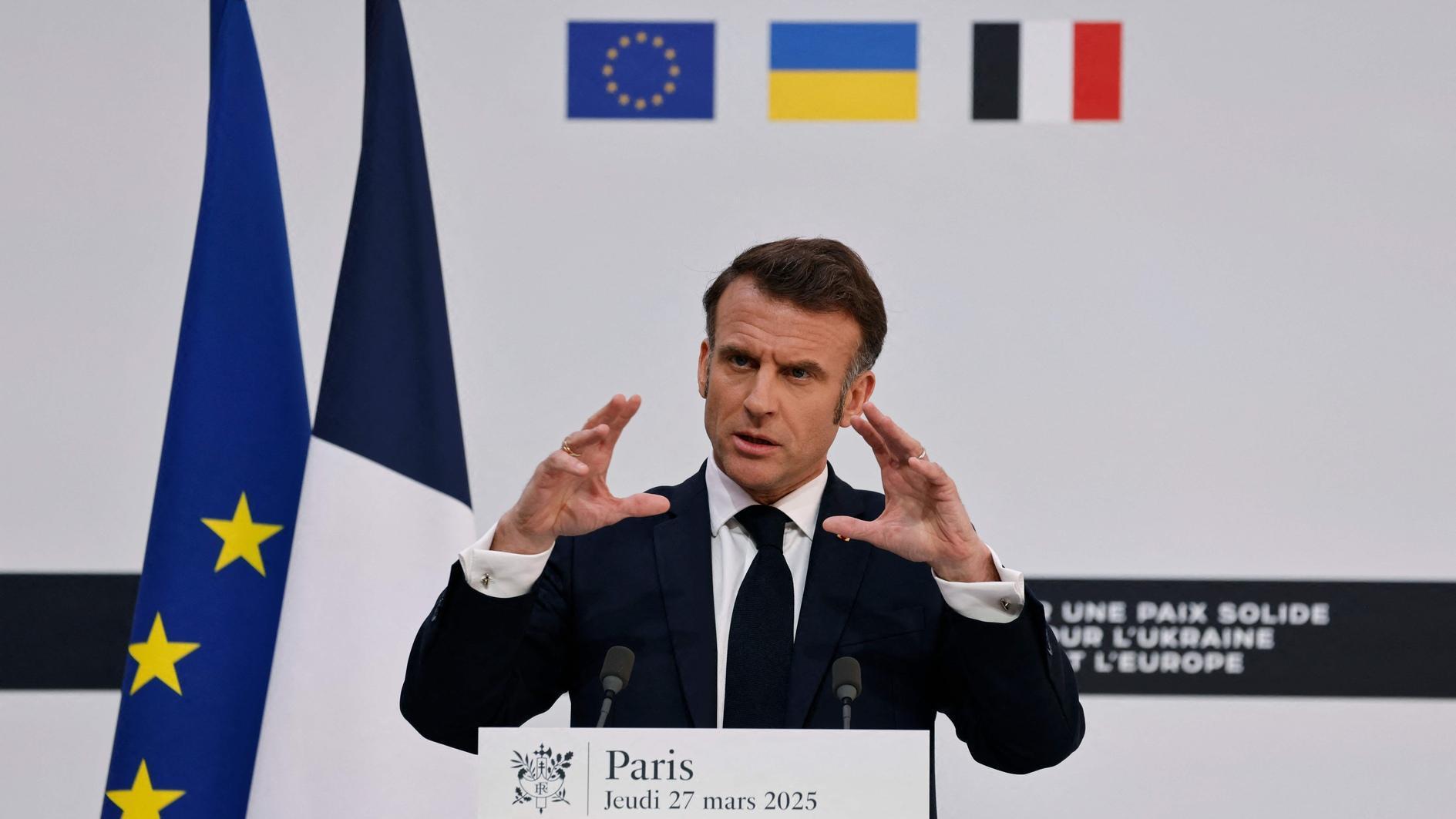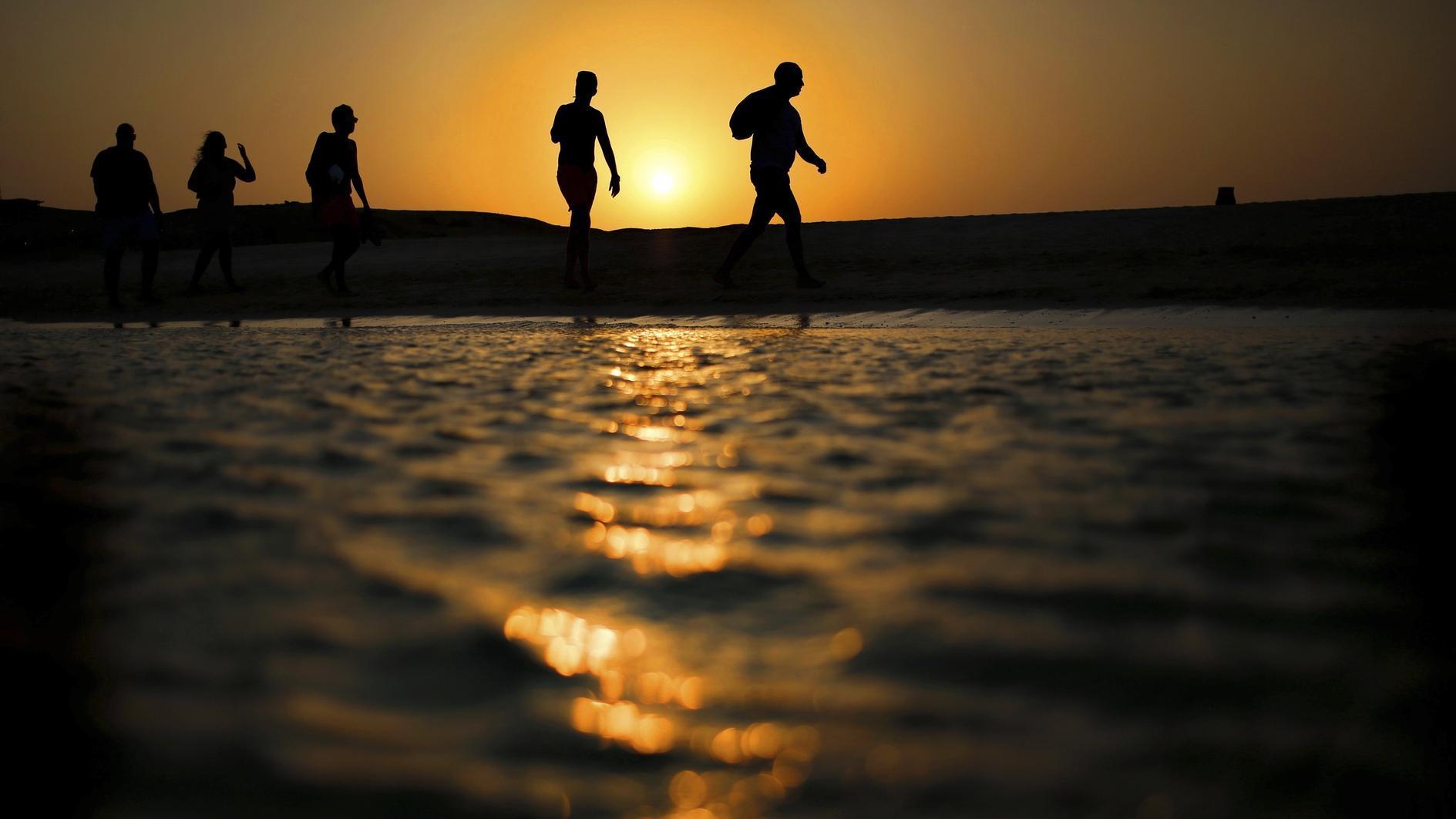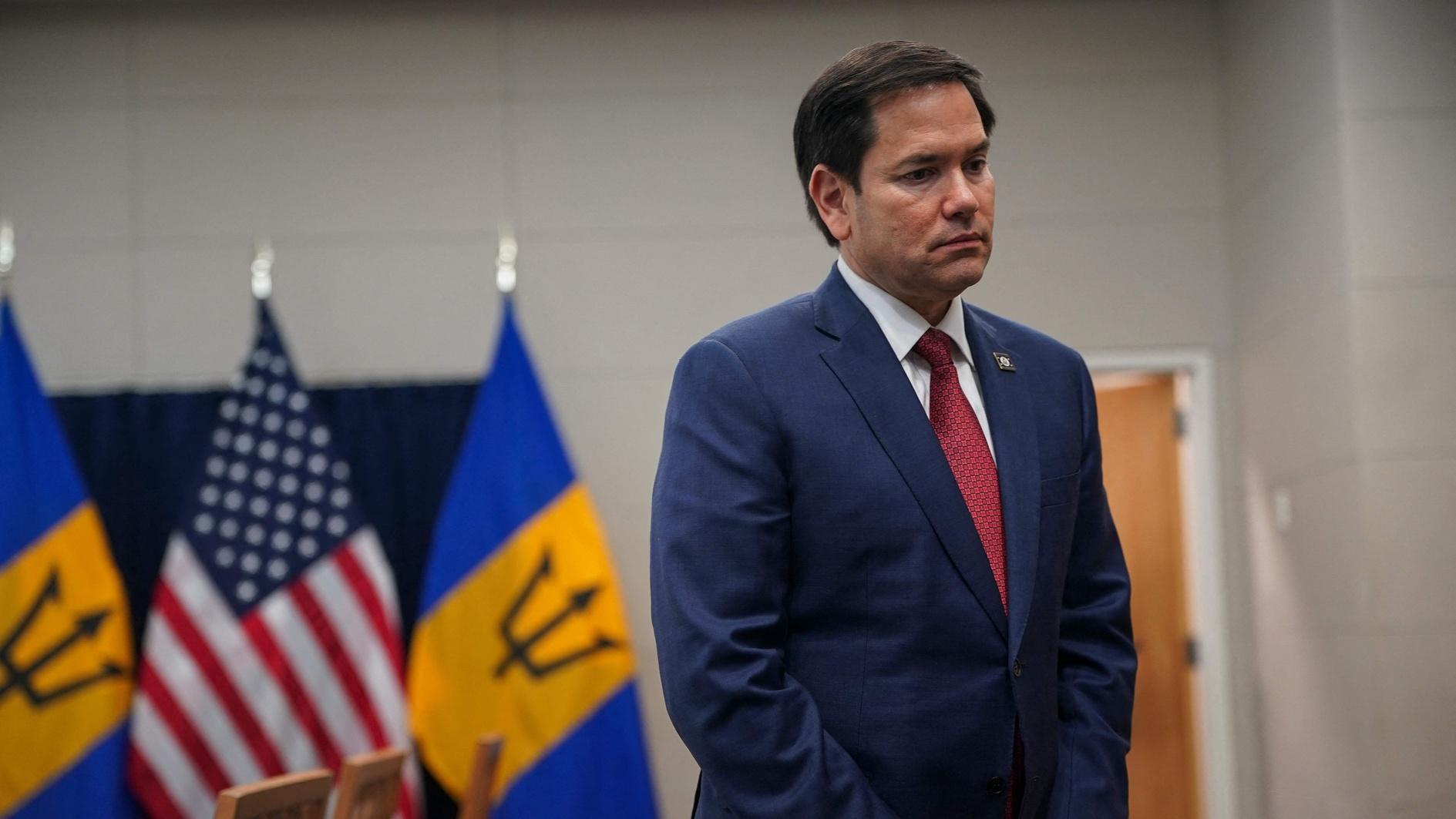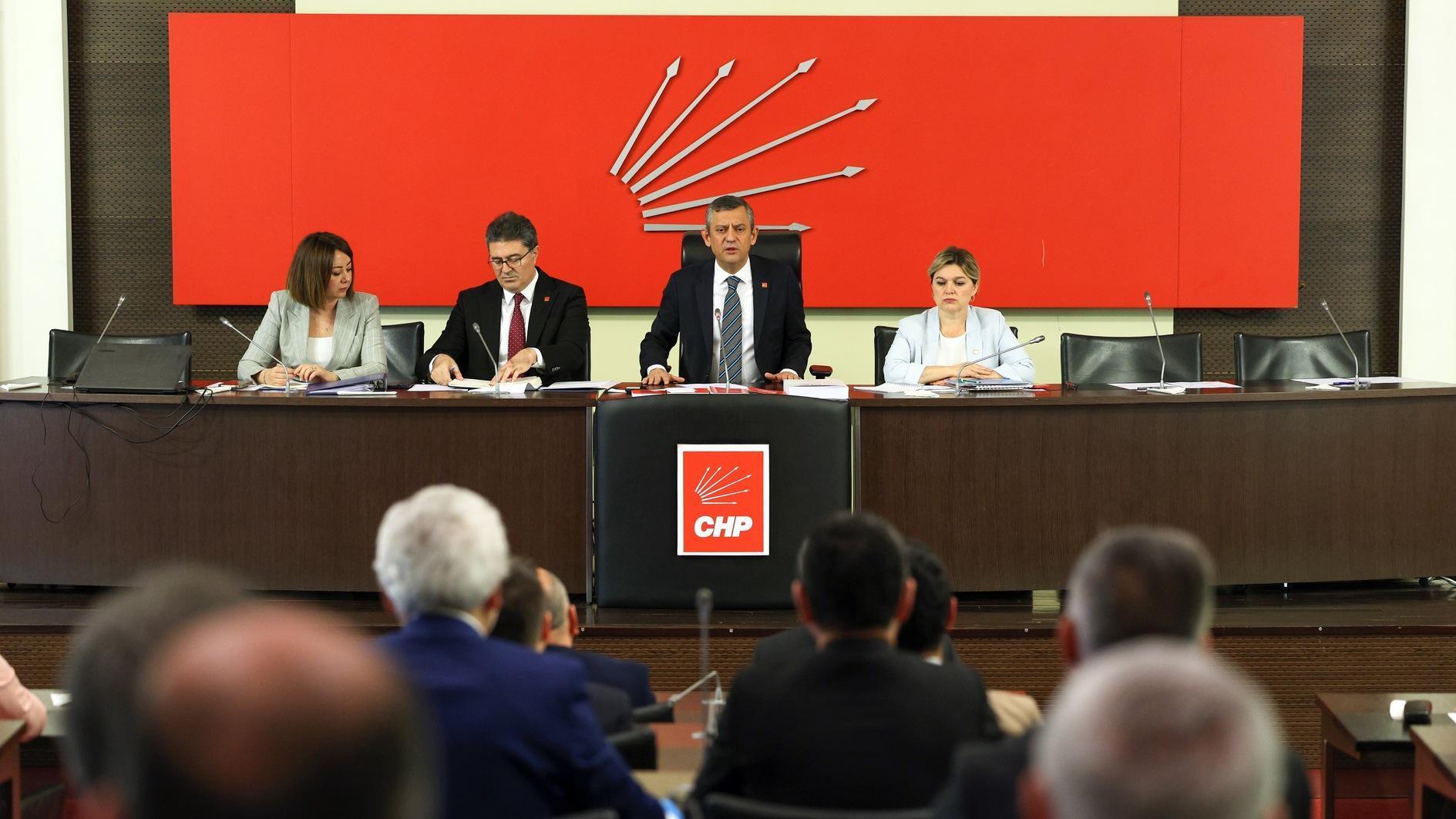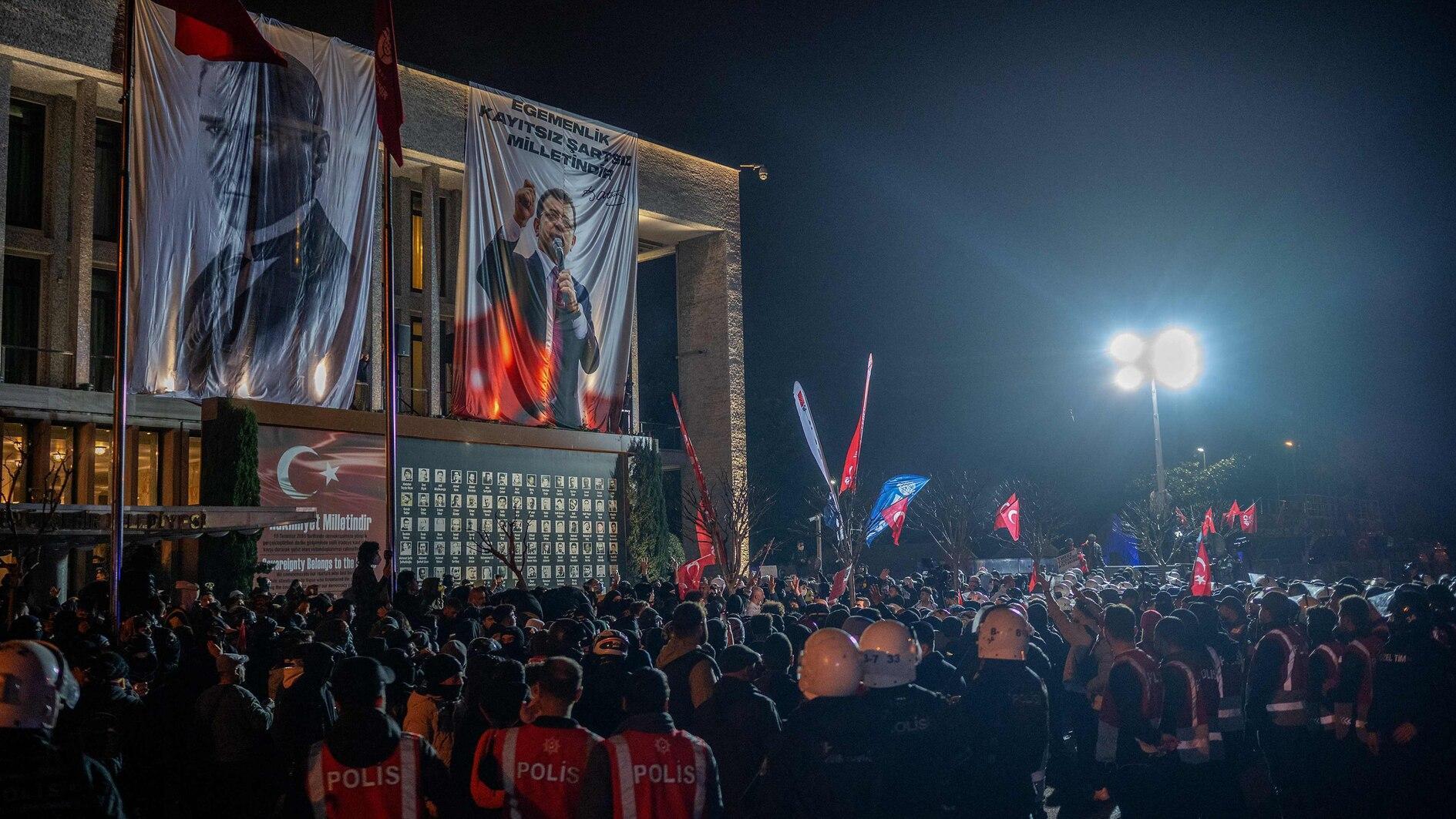Turkey’s top cleric urges Pope to act over mosque attacks
ANKARA
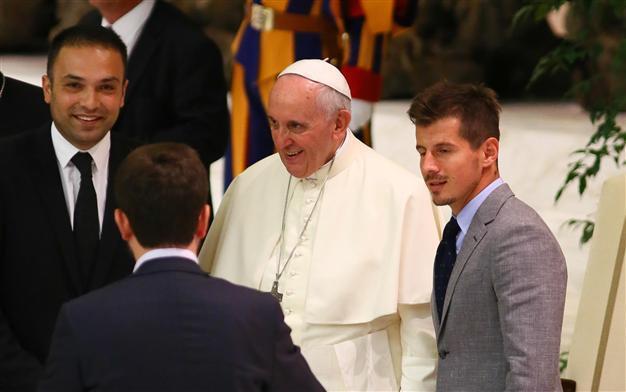
Fenerbahçe captain Emre Belözoğlu poses with Pope Francis before the peace match for peace organized by the Vatican, Sept. 1. AA Photo
Drawing attention to steadily rising attacks against mosques in Germany, Turkey’s top cleric has said the Pope must “translate words into deeds with regard to the misperception and misinterpretation of Islam.”In Germany, from 2001 to 2013, an average of 22 mosques were attacked each year, Mehmet Görmez, the head of Turkey’s Directorate for Religious Affairs (Diyanet), said on Sept. 2, adding that the figure had risen to 36 in 2013 and to 70 in 2014.
All religious institutions, the Vatican being in the first place, should focus on these rising attacks against mosques in Germany, Görmez said, while speaking at a meeting at the Diyanet’s Ankara headquarters. The meeting was also attended by a senior member of the ruling Justice and Development Party (AKP), Ankara deputy Emrullah İşler, who served as deputy prime minister until the new government took office a few days ago.
“This doesn’t happen through things like washing a young girl’s feet or arranging inter-religious football games and tournaments,” he added, in an apparent reference to symbolic moves made by Pope Francis. In March 2013, the Pope made international headlines by washing the feet of two women and two Muslims at a juvenile detention center in Rome. Before this, modern Popes had only ever washed the feet of 12 priests at the Vatican, during the Mass for the Last Supper.
“There is need to quell movements of ‘otherization’ and ‘enemization’ aimed at members of a high religion like Islam, by acting upon the wisdom that these divine religions brought to the earth. A very big task now rest on the shoulders of the Presidency of the Directorate for Religious Affairs regarding this issue,” Görmez also said.
İşler was at the Diyanet’s HQ to pay farewell to staff with whom he worked closely with during his time as deputy prime minister.
For his part, he attributed a challenging mission to the Diyanet in the upcoming period for reversing the current portrayal of Islam solely as “a problem of security and legitimacy.”
According to İşler, Islam and the Muslim world are currently passing through “one of the most difficult times in its history.”
“Today, the biggest problem that Islam faces is that certain powers, no need to mention who they are, only wish for Islam to be present so they can turn the situation into a problem of security and legitimacy,” İşler said.
“However, as Muslims, we are not doing and we cannot do much either. Not only Muslims, not only religious institutions belonging to Muslims, but all religious institutions, the Vatican being in the first place, should lay stress on this matter,” he added.
The former Cabinet member also touched upon a recent change in regards to the Diyanet’s status. As part of the reassignments in the new Cabinet, Prime Minister Ahmet Davutoğlu wanted to have the Diyanet under his subordination. Though previously subordinated to another ministry, Diyanet the highest religious authority in Turkey - which, although a majority Muslim country, has been a secular state since the 1920s - will henceforth be under Davutoğlu’s personal responsibility.
Görmez described Davutoğlu’s move as “a courtesy,” underlining that the Diyanet’s staff had welcomed the move that he said would “toughen their responsibility.”


